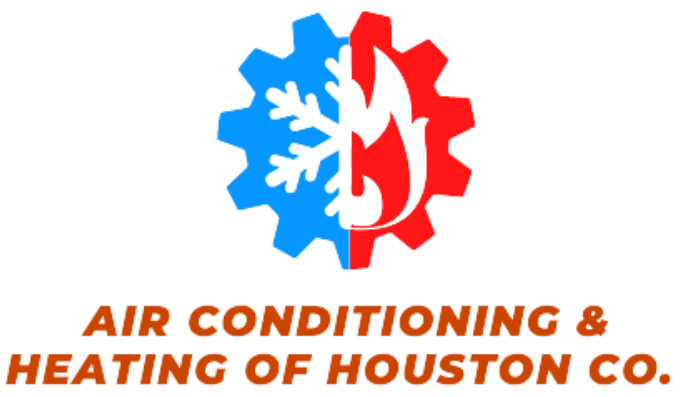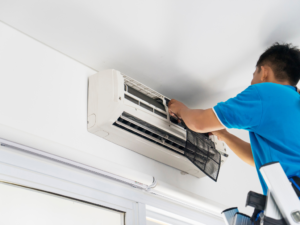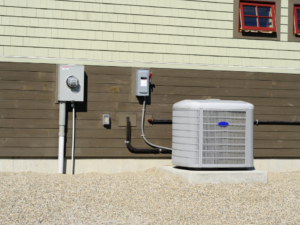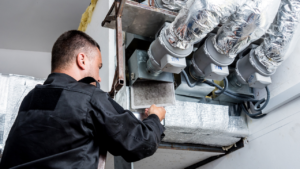Does your AC blow cold air? You don’t want to discover that your air conditioner doesn’t work properly when you wake up or arrive home. This is uncomfortable and can be dangerous to your health, family, and the pets in the house.
You should act immediately if you discover a problem. Wait until the heat is unbearable before you take action. If in doubt, contact a professional HVAC technician.
Your HVAC unit can stop circulating cold air for a variety of reasons. Some of these are easy to fix and can be done immediately. Others require an expert.
What to do if your AC is not blowing cold, and how to fix it.
How Does a Central AC System Work?
It understands how the AC works, which will help you understand why it may not work properly.
The liquid refrigerant used by your air conditioner is called a liquid. This liquid is passed over the indoor coils of the evaporator to absorb heat in your home. This liquid becomes ice gas after it absorbs heat. The AC unit fan blows over the refrigerant-cooled coils and pushes the cold air out through the ductwork to circulate in the home.
This gaseous refrigerant then carries heat back to an outdoor condenser unit, transforming it into a liquid and released into the outside air. The cycle is repeated to cool your house. Many things could go wrong with so many steps.
Here are the top 5 reasons:
1. Leaking or Low Refrigerator
Chemically, the refrigerant is R410A or Puron, which are the most common.
The refrigerant could be the cause of your AC not working properly. The unit is running low on refrigerant and needs more added.
A leak is the most likely culprit. Leaks can not only prevent the AC unit from cooling properly, but they can also cause other problems in the home. When it’s not cool enough in your home, the humidity can increase, making it seem hotter.
Contact an HVAC technician immediately if you suspect that there is a leak of refrigerant. Diagnosing and repairing these leaks can be easy if they are large.
2. The Filter Is Dirty or Clogged
Another typical AC unit issue is filthy or clogged filters. These filters constantly work overtime to trap hair, dust, lint, and pollen. If you don’t change them regularly, they will quickly become full.
If this occurs, your air conditioner may stop working because it cannot get enough air. The temperature inside will soar if the air conditioner is not working correctly. If left unattended, clogged air filters can cause parts to wear faster. This can cause a larger problem, affecting the evaporator and condenser.
Filters should be replaced every three months, in addition to regular cleaning. You may need to replace it more frequently if you have pets indoors.
It should be easy to change indoor air filters yourself. AC technicians can assist if you need help deciding which filter to use.
3. The Evaporator or Condenser Coil Is Not Working Properly
Even though the filters do their best to keep coils operating at maximum performance, they will eventually wear out.
Your indoor evaporator can suffer from mildew or mold due to the constant moisture. UV lights can help keep the air clean and prevent mildew. The coils can also freeze if there is a low refrigerant.
HVAC professionals should address coil issues as soon as they arise. They can cause serious disruptions within the unit.
Over time, the condenser may also become worn out. Check the condenser if your air conditioner does not blow cold air and no other cause is found.
4. Block or Clogged Registers
A blocked or clogged vent (or register) can restrict airflow like a clogged air filter. The return air register brings air into the system, and the supply vents blow the conditioned air in the home. Clogs in either cause problems.
If there is a blockage in the ventilation system or the ductwork leaks, this will impact the cooling. If you see a tear or hole in your ductwork, it could be that your cold air is leaking from your attic. If you have mice or rats living in your attic, they can cause damage to your ductwork. This will affect the cooling system.
Only that room may feel warmer if something restricts air near the vent. This indicates that there could be a problem with the ventilation in your ducts, which supply air-conditioned air to your home or workplace.
It’s also important to note that vents can be accidentally closed. Check if the supply vents are fully open if only one room is particularly warm.
It will come a day when the cost of repairing your HVAC system will increase. When this happens, you may need to replace your HVAC system.
5. Thermostat Issue – AC Not Blowing Cold Air
All the action begins at the thermostat. The AC will turn on once the air temperature rises above control. First, make sure that the thermostat has not been altered. Check that it’s set to cool or auto. Sometimes, thermostats are set to cool instead of heat, which can cause the problem.
If set properly, the thermostat may be the problem, but the AC still doesn’t come on. If it takes batteries, replace them if needed. You should call an AC professional if you need help solving the problem.
Maintaining Your AC Will Prevent It From Not Blowing Cold Air
Your central air conditioner needs maintenance just like any other machine. All working components must be inspected, and filters need to change.
The standard recommendation is to have your HVAC system tuned up twice a year. Spring and fall are the best times to do this. Before the weather turns hot or cold, the technician can inspect your HVAC system to make necessary adjustments or repairs.
It will keep your unit operating efficiently and reduce the chance of costly breakdowns or unexpected problems in the future.
HVAC Service Experts Can Help You Beat the Heat
You must ensure your heat pump or air conditioner runs at its best when the weather gets hot. When your AC is not blowing cool air, the temperature inside your home will quickly rise.
This problem can be caused by various factors, ranging from simple to complex. You owe yourself and your family the opportunity to hire an HVAC professional to assess the situation if you need clarification on the problem.
Air Conditioning & Heating of Houston Co. offers expert repairs in Houston, TX. We are always here to assist you with your needs and provide high-quality services at competitive costs.
Our scheduled maintenance program will make it easy to maintain your HVAC system. Don’t hesitate to contact us for more information about how we can get your cold air flowing again. We would be delighted to earn your business.
FAQs
What causes my AC to stop blowing cold air suddenly?
Check your coils and filters for debris and dirt blocking airflow. After cleaning the coils and filters, you can run the AC with only the fan to melt the ice. The refrigerant level is too low if your AC doesn’t blow cold air.
Why does my AC blow cold air but not cool?
A clogged filter is one of the most common reasons for this problem. It can block the airflow, preventing the air conditioner from cooling properly. Other causes include a malfunctioning air conditioner, a refrigerant leaking, a problem in the compressor, leaky ductwork, or windows.
What is the reset button for my AC?
You can find it outside the machine, preferably along the bottom edge. The reset button on an AC is usually red and easily visible. You may not see the reset button outside. It could be inside behind the service panel.
When should I turn off the AC if my AC is not cooling?
If your air conditioner doesn’t cool and you suspect a refrigerant leak, or you have checked your thermostat and air filter, but to no avail, you should turn off your air conditioner and contact us immediately.
When does AC stop cooling at a certain temperature?
Temperatures Above 100 Degrees Fahrenheit
Most air conditioning systems can only function at temperatures below 100 degrees Fahrenheit. The air conditioning system may fail or malfunction when temperatures exceed 100 degrees Fahrenheit.




